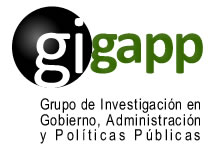La arena de internet como el nuevo poder social para influenciar en las políticas públicas y la democracia: El caso del turismo en Barcelona.
Resumen
La organización institucional que se ha establecido en España y que es la base y rige nuestro sistema legal es la Constitución Española, la cual se aprobó en 1978, por lo que el país se encuentra sumido en una joven Democracia que está a la búsqueda del pleno y óptimo rendimiento y que lucha por conseguir la atención y el respeto de los ciudadanos jóvenes, los Millennials. El acceso a internet y el uso de las redes sociales por parte de gran parte de la sociedad, ha permitido que los actores que históricamente contaban con menos recursos sean no solo escuchados por los políticos si no que los ciudadanos se puedan agregar a su causa con un simple gesto desde su dispositivo electrónico, posibilitando la entrada de sus propuestas a la agenda política.Esta realidad está difuminando la línea entre percepción y realidad de nuestro sistema político. Barcelona, capital turística, está viviendo un claro ejemplo de cómo la arena de internet ha resultado un excelente conductor de las reivindicaciones y movilizaciones de protesta ciudadana contra el crecimiento turístico en algunos barrios de la ciudad.
Descargas
Derechos de autor 2017 Esther Querol Castillo

Esta obra está bajo licencia internacional Creative Commons Reconocimiento-NoComercial-CompartirIgual 4.0.
Aquellos autores/as que tengan publicaciones con esta revista, aceptan los términos siguientes:
a. Los autores/as conservarán sus derechos de autor y garantizarán a la revista el derecho de primera publicación de su obra, el cuál estará simultáneamente sujeto a la Licencia de reconocimiento de Creative Commons Attribution-NonCommercial-ShareAlike 4.0 International (CC BY-NC-SA 4.0) que permite a terceros compartir la obra siempre que se indique su autor y su primera publicación esta revista.
Con esta licencia de acceso abierto, los lectores (usuarios) pueden:
- Compartir — copiar y redistribuir el material en cualquier medio o formato
- Adaptar — remezclar, transformar y construir a partir del material
Bajo los siguientes términos:
-
Atribución — usarios deberán dar crédito de manera adecuada, brindar un enlace a la licencia, e indicar si se han realizado cambios. Puede hacerlo en cualquier forma razonable, pero no de forma tal que sugiera que usted o su uso tienen el apoyo de la licenciante.
-
NoComercial — usuarios no puede hacer uso del material con propósitos comerciales.
-
CompartirIgual — Si remezcla, transforma o crea a partir del material, usuarios deben distribuir su contribución bajo la misma licencia del original.
-
Sin restricciones adicionales: los usuarios no pueden aplicar términos legales o medidas tecnológicas que restrinjan legalmente a otros de hacer cualquier cosa que permita la licencia.
b. Los autores/as podrán adoptar otros acuerdos de licencia no exclusiva de distribución de la versión de la obra publicada (p. ej.: depositarla en un archivo telemático institucional o publicarla en un volumen monográfico) siempre que se indique la publicación inicial en esta revista
c. Se permite y recomienda a los autores/as difundir su obra a través de Internet (p. ej.: en archivos telemáticos institucionales o en su página web) antes y durante el proceso de envío, lo cual puede producir intercambios interesantes y aumentar las citas de la obra publicada. (Véase El efecto del acceso abierto).



